Having said all this, a quick browse through the “External Links” on the UK Postcodes Wikipedia entry, and I quickly found an article by Paul Jenkins entitled UK Post Code Distance Calculation in PHP, which is fantastic, you can even download it here (uk_postcode_calc.zip).
After a short examination it seems this does exactly what it says on the tin, and simply calculates the distance.
However, with a quick google for php distance calculation, you can quickly find that there are more refined equivalents of the distance calculation. I thought it might be a good idea to use one of those instead.
After a bit of tweaking, here’s what I came up with in the end:
function distance($lat1, $lon1, $lat2, $lon2, $u=’1′) {
$u=strtolower($u);
if ($u == ‘k’) { $u=1.609344; } // kilometers
elseif ($u == ‘n’) { $u=0.8684; } // nautical miles
elseif ($u == ‘m’) { $u=1; } // statute miles (default)
$d=sin(deg2rad($lat1))*sin(deg2rad($lat2))+cos(deg2rad($lat1))*cos(deg2rad($lat2))*cos(deg2rad($lon1-$lon2));
$d=rad2deg(acos($d));
$d=$d*60*1.1515;
$d=($d*$u); // apply unit
$d=round($d); // optional
return $d;
}
So, that’s the hard parts done (database and maths), next is simply a case of using this information to “find the closest” from the postcode we input to an array of postcodes we supply…
To find the “closest” postcode, effectively what we’re trying to do is find the “shortest” distance between the postcodes, or, simply the smallest number in the results, assuming we put the results into an array with the key as the postcode and the distance as the value.
All we have to do is create a simple script that will find the smallest number in a given array, then return the appropriate key. Simple!
function closest ($needle,$haystack) {
if (!$needle || !$haystack) { return; }
if (!is_array($haystack)) { return; }
$smallest=min($haystack); //smallest value
foreach ($haystack as $key => $val) {
if ($val == $smallest) { return $key; }
}
}
The above script does exactly what we want, using the “min” function we can quickly work out what we need to return.
The only task left is to bind all this together, we need to create two functions that will:
Get the distance using the postcode to get the longitude and latitude from the database.
Create an array with the postcodes as the keys, and the distance as the values.
Very simple!
Function 1, Postcode Distance
function postcode_distance ($from,$to) {
// Settings for if you have a different database structure
$table=’postcodes_uk’;
$lat=’lat’;
$lon=’lon’;
$postcode=’postcode’;
// This is a check to ensure we have a database connection
if (!@mysql_query(‘SELECT 0′)) { return; }
// Simple regex to grab the first part of the postcode
preg_match(‘/[A-Z]{1,2}[0-9R][0-9A-Z]?/’,strtoupper($from),$match);
$one=$match[0];
preg_match(‘/[A-Z]{1,2}[0-9R][0-9A-Z]?/’,strtoupper($to),$match);
$two=$match[0];
$sql = “SELECT `$lat`, `$lon` FROM `$table` WHERE `$postcode`=’$one’”;
$query = mysql_query($sql);
$one = mysql_fetch_row($query);
$sql = “SELECT `$lat`, `$lon` FROM `$table` WHERE `$postcode`=’$two’”;
$query = mysql_query($sql);
$two = mysql_fetch_row($query);
$distance = distance($one[0], $one[1], $two[0], $two[1]);
// For debug only…
//echo “The distance between postcode: $from and postcode: $to is $distance miles\n”;
return $distance;
}
Function 2, Postcode Closest
function postcode_closest ($needle,$haystack) {
if (!$needle || !$haystack) { return; }
if (!is_array($haystack)) { return; }
foreach ($haystack as $postcode) {
$results[$postcode]=postcode_distance($needle,$postcode);
}
return closest($needle,$results);
}
So, with that done, place the 4 above functions into a file such as “postcode.php”, ready for use in the real world…
Test case:
<?php
include_once(‘postcode.php’);
if ($_POST) {
include_once(‘db.php’);
$postcodes=array(‘TF9 9BA’,'ST4 3NP’);
$input=strtoupper($_POST['postcode']);
$closest=postcode_closest($input,$postcodes);
}
if (isset($closest)) {
echo “The closest postcode is: $closest”;
}
?>
<form action=”" method=”post”>
Postcode: <input name=”postcode” maxlength=”9″ /><br />
<input type=”submit” />
</form>
You can download this script here: postcode_search.phps
Note: In the above test case, I have a “db.php” file which contains my database details and starts a database connection. I suggest you do the same.
Ensure you have your database populated, you should be able to use Paul Jenkins’s UK Postcode csv, allowing you to use your own table structure.
Well, that’s all folks, I can now use this script to provide any locations that match the “closest” postcode.

